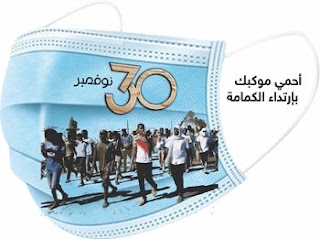HERE is a full copy of What's in Blue report dated Tue 11 Jan 2022. Note that Sudan's Prime Minister Hamdok resigned on 2 Jan. The UN Security Council will receive the semi-annual briefing of the ICC Prosecutor on Darfur on 17 Jan. The following meeting was requested by the UK, the penholder on Sudan.
Sudan: Meeting under “Any Other Business”
Tomorrow (12 January), following the open briefing and closed consultations on Yemen, Security Council members will discuss the situation in Sudan under “any other business”. The meeting was requested by the UK (the penholder on Sudan), together with Albania, France, Ireland, Mexico, Norway, and the US. Special Representative for Sudan and head of the UN Integrated Transition Assistance Mission in Sudan (UNITAMS) Volker Perthes is expected to brief.
Perthes is expected to update members on the latest developments in the ongoing political crisis in Sudan following the military coup d’état of 25 October 2021, particularly in light of Prime Minister Abdalla Hamdok’s resignation on 2 January. Perthes last briefed the Council on 10 December 2021 (S/PV.8925) on the Secretary-General’s most recent 90-day report on UNITAMS (S/2021/1008). (For background, see our What’s in Blue story from 9 December 2021.)
Hamdok announced that he is stepping down in a televised address, during which he referred to failed mediation attempts between civilian and military leaders and said that the country is at a “dangerous turning point that threatens its whole survival”. His resignation came against the backdrop of ongoing widespread protests in the country against the 25 October 2021 coup and the subsequent power-sharing agreement between the civilian and military entities announced on 21 November 2021, which included Hamdok’s reinstatement as prime minister. Several parties have rejected the agreement, including the main opposition alliance, the Forces for Freedom and Change Coalition (FFC).
The crackdown on protestors since 25 October 2021 is another area of immediate concern for Council members. As at 9 January, according to the medical group Central Committee of Sudan Doctors, 62 people have been killed and hundreds have been injured during protests involving the excessive use of force by security forces since 25 October 2021. Some Council members may emphasise the need to conduct timely investigations into casualties during the demonstrations and the importance of accountability for this violence.
Secretary-General António Guterres took note of Hamdok’s resignation in a 3 January statement and expressed regret that “a political understanding on the way forward is not in place despite the gravity of the situation in Sudan”. He also condemned the “continued violence targeting protestors”. In a 4 January statement, the Troika on Sudan (Norway, the UK and the US) and the EU emphasised that “Sudanese stakeholders will need to work on the basis of the 2019 Constitutional Declaration on how to overcome the nation’s current political crisis, select new civilian leadership, and identify clear timelines and processes for the remaining transitional tasks – including establishing the legislative and judicial branches of government, creating accountability mechanisms, and laying the groundwork for elections”. The statement urged “stakeholders to commit to an immediate, Sudanese-led and internationally facilitated dialogue” and said that the killing and injuring of protestors “is unacceptable”, while calling for independent investigations and accountability for perpetrators. The statement was reportedly rejected by the military.
At tomorrow’s meeting, Council members will be interested in hearing more from Perthes on the role of UNITAMS, particularly regarding the “UN-facilitated intra-Sudanese political process” announced by Perthes in an 8 January statement. The political process is “aimed at supporting Sudanese stakeholders in agreeing on a way out of the current political crisis and agree[ing] on a sustainable path forward towards democracy and peace”, according to the statement. Noting that “measures taken to date have not succeeded in restoring the course of this transformation”, the statement says that “all key civilian and military stakeholders, including armed movements, political parties, civil society, women’s groups, and resistance committees will be invited to participate”.
The 8 January announcement about the UN-facilitated process followed international pressure to find a way forward in resolving the political crisis. The announcement was welcomed in a statement by the Quad on Sudan (Saudi Arabia, the United Arab Emirates, the UK and the US), which expressed “strong support for the “UN-facilitated, Sudanese-led dialogue initiative”.
In a 10 January press briefing, Perthes announced the commencement of consultations on the way forward and provided further details, emphasising that the UN would play a facilitation role in the process, which will be Sudanese-led. Council members will likely seek further details on the next steps in this process, including an assessment of the various stakeholders’ willingness to participate. According to media reports, the Sudanese Professionals Association—an umbrella association of several trade unions—rejected participation in the initiative, while the FFC said that they would announce a position when further details are available. The military-led Transitional Sovereign Council reportedly welcomed the announcement of the UN-facilitated process, while also calling for AU involvement. (On 26 October 2021, the AU Peace and Security Council (PSC) adopted a communiqué suspending Sudan from the AU “until the effective restoration of the civilian-led Transitional Authority”. The AU PSC decided, according to a 24 November 2021 communiqué, to “promptly dispatch a mission to Sudan”, which has yet to take place.)
In addition to political developments, members may want to hear more about the situation in Darfur, including after looting and attacks against UN facilities, equipment and supplies which took place during December 2021. On 24 December 2021, there was looting and violence at the former UN/AU Hybrid Operation in Darfur (UNAMID) base in El Fasher, North Darfur, which was handed over to local Sudanese authorities three days earlier. On 28 December 2021, a World Food Programme warehouse in El Fasher was attacked by unknown armed groups. Over 1,900 metric tons of food commodities meant to feed 730,000 vulnerable people were stolen, according to the Secretary-General’s spokesperson.
Looking ahead, the Council will receive the semi-annual briefing of the ICC Prosecutor on Darfur on 17 January.
View original: https://www.securitycouncilreport.org/whatsinblue/2022/01/sudan-meeting-under-any-other-business.php









